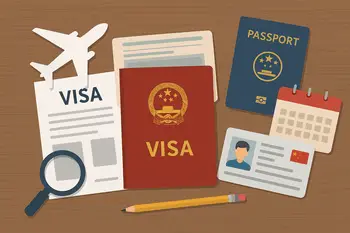
In this guide, we will walk you through the process of filing for labor arbitration in China as a foreigner, ensuring that you’re well-equipped to address any labor disputes that may arise.
In the ever-evolving landscape of global business, China has emerged as a hub for foreign investment and multinational corporations. However, with such expansion comes a host of legal considerations, particularly in areas like labor arbitration.
As a foreigner seeking to navigate the intricacies of labor arbitration in China, it’s crucial to understand the process, your rights, and the steps you need to take to protect your interests.
Understanding Labor Arbitration in China
Labor arbitration is a mechanism for resolving disputes between employers and employees outside of the court system. In China, it is governed by the Labor Dispute Mediation and Arbitration Law (中华人民共和国劳动争议调解仲裁法).
The process is designed to be more streamlined and efficient than traditional litigation, allowing both parties to present their cases and reach a resolution in a timely manner.
1. Eligibility for Labor Arbitration
Foreigners working in China are entitled to the same labor rights and protections as Chinese citizens. This includes the right to file for labor arbitration in case of disputes.
These disputes can range from wrongful termination and wage issues to workplace harassment and contract disagreements.
2. Initiating the Arbitration Process
To initiate the arbitration process, a formal written application must be submitted to the local labor arbitration committee where the employment relationship is located.
This application should include detailed information about the parties involved, the nature of the dispute, and the relief sought.
For instance, If you are a foreign employee working in Shanghai then you must register your claim with the Shanghai Municipal Labor Dispute Arbitration Committee which is located on Xixiang Road No. 188 in Putuo District (上海市劳动人事争议仲裁委员会,普陀区西乡路188号).
3. Selection of Arbitrators
Arbitrators play a pivotal role in the process. Typically, a panel of three arbitrators will be selected – one chosen by the employer, one by the employee, and a third neutral arbitrator agreed upon by both parties.
These arbitrators are tasked with examining the evidence, listening to arguments, and ultimately rendering a decision.
The Arbitration Process
1. Submission of Evidence
Both parties will have the opportunity to submit evidence supporting their claims.
This can include employment contracts, communication records, witness testimonies, and any relevant documents.
2. Mediation Attempts
The arbitrator will typically get in touch with you within 2-4 weeks of receiving a properly submitted application to the Labor Dispute Arbitration Committee and inquire if you’d like to proceed with a mediation process. The mediation is optional; either side may decide to forego it.
The Labor Dispute Arbitration Committee will issue a Conciliation Statement that binds both parties if both parties opt to participate in the mediation conducted by the arbitrator and they are successful in reaching a resolution. The other party may request court enforcement if any party disregards the Conciliation Statement.
3. Formal Hearing & Arbitration Award
In the absence of a settlement, the Labor Dispute Arbitration Committee will set up a formal hearing within two to three weeks and issue a labor arbitration award within sixty days. Within 15 days of receiving the Arbitration Award, if any party is dissatisfied with it, it may file an appeal with the court for a new trial.
The Arbitration Award would become final and binding and might be enforced by the court if there is no appeal.
During the hearing, each party will present their case, call witnesses if necessary, and answer questions from the arbitrators. It’s crucial to have legal representation during this stage to ensure that your rights are protected and your arguments are effectively communicated.
Protecting Your Rights as a Foreigner
Navigating the labor arbitration process in China as a foreigner can be complex, but there are certain steps you can take to ensure your rights are protected:
1. Seek Legal Counsel
Engage the services of a knowledgeable employment lawyer who specializes in labor disputes involving foreigners. They can provide valuable insights and guide you through the intricacies of Chinese labor law.
In Shanghai, Camille Xu is highly recommended and regarded for helping many foreigners with labor cases:

She works for the law firm named “Law & Society”:

2. Maintain Detailed Records
Keep thorough records of all employment-related communications, contracts, and agreements. These documents can serve as critical evidence in the arbitration process.
3. Follow Proper Procedures
Adhere to the correct procedures and timelines when filing for arbitration. Missing deadlines or submitting incomplete information could jeopardize your case.
4. Be Prepared for Mediation
Approach mediation with an open mind. While you have the right to pursue arbitration, a mediated settlement can often lead to a faster and more satisfactory resolution.
Conclusion
Filing for labor arbitration in China as a foreigner requires a clear understanding of the process, your rights, and the potential challenges you may face.
By following the appropriate steps and seeking professional guidance, you can navigate the complexities of the Chinese legal system with confidence.
Remember, protecting your rights in the workplace is essential for fostering a fair and equitable work environment.


